- Forum
- categories
- Announcements and miscellaneous
- Miscellaneous - any other topic
- is there any particular earthworm species preferred for waste water treatment ? and worm identification questions
is there any particular earthworm species preferred for waste water treatment ? and worm identification questions
23.9k views
- fppirco
-
Topic Author
- I am independent EH&S researcher in natural resources recovery ,water,wastewater,agro_food ...fields.
Less- Posts: 98
- Karma: 1
- Likes received: 22
Re: is there any particular earthworm species preferred for waste water treatment ? and worm identification questions
Dear hajo
Thanks for your invaluable explaination.
Regards;
Mohammad
Thanks for your invaluable explaination.
Regards;
Mohammad
Researcher and consultant
Please Log in to join the conversation.
You need to login to reply- hajo
-

- retired in Germany... but still interested in water and sanitation... especially in OSS... and especially in Africa...
Less- Posts: 288
- Karma: 15
- Likes received: 156
Re: is there any particular earthworm species preferred for waste water treatment ? and worm identification questions
Dear Mohammad,
Going through your different mails and the topic on SuSanA forum which is quoted by Elisabeth ( forum.susana.org/39-miscellaneous-any-ot...tions?start=12#29039 ), I notice that you are again and again asking for the identification of worms which may be used waste water treatment. You are always directed to look somewhere else for the information, while you want someone knowledgeable identify the ‘worms’ you are presenting.
At one point Dean alerted you that it was a slug not a worm.
But those worms which you presented in March 2018, nobody identified them. I can imagine that most participants on the forum may not be able to identify worms from pictures (like me!), others may be able to identify those they are working with, but may not be able to say whether a different looking worm could also be used in waste water treatment. You have to understand that you may not get a straight response on this forum, most of us a just ‘book worms’… 😊 .. and worm identification from pictures may not be easy even for those who handle worms..
In my response to your first inquiry in September 2017, I gave you a link to ‘vermicompost’ in WIKIPEDIA. If you open that page, you get a chapter about suitable worm species. Here you find descriptions and pictures of worms which can be used in waste water treatment which may help you to identify your worms. This does not help you to identify worms which look different, I agree. In this case you may try finding a biologist in your country and vicinity, who can possibly help you identifying the kind of worm and their possible application on waste water treatment.
This is what I would do, if I had to collect worms in the wild for my waste water project, hope this helps.
Ciao
Hajo
Going through your different mails and the topic on SuSanA forum which is quoted by Elisabeth ( forum.susana.org/39-miscellaneous-any-ot...tions?start=12#29039 ), I notice that you are again and again asking for the identification of worms which may be used waste water treatment. You are always directed to look somewhere else for the information, while you want someone knowledgeable identify the ‘worms’ you are presenting.
At one point Dean alerted you that it was a slug not a worm.
But those worms which you presented in March 2018, nobody identified them. I can imagine that most participants on the forum may not be able to identify worms from pictures (like me!), others may be able to identify those they are working with, but may not be able to say whether a different looking worm could also be used in waste water treatment. You have to understand that you may not get a straight response on this forum, most of us a just ‘book worms’… 😊 .. and worm identification from pictures may not be easy even for those who handle worms..
In my response to your first inquiry in September 2017, I gave you a link to ‘vermicompost’ in WIKIPEDIA. If you open that page, you get a chapter about suitable worm species. Here you find descriptions and pictures of worms which can be used in waste water treatment which may help you to identify your worms. This does not help you to identify worms which look different, I agree. In this case you may try finding a biologist in your country and vicinity, who can possibly help you identifying the kind of worm and their possible application on waste water treatment.
This is what I would do, if I had to collect worms in the wild for my waste water project, hope this helps.
Ciao
Hajo
We can't solve problems by using the same kind of thinking we used when we created them.
Albert Einstein
Any intelligent fool can make things bigger and more complex... It takes a touch of a genius - and a lot of courage to move in the opposite direction.
E.F. Schumacher
Everything should be made as simple as possible, but not simpler.
Albert Einstein
Albert Einstein
Any intelligent fool can make things bigger and more complex... It takes a touch of a genius - and a lot of courage to move in the opposite direction.
E.F. Schumacher
Everything should be made as simple as possible, but not simpler.
Albert Einstein
The following user(s) like this post: fppirco
Please Log in to join the conversation.
You need to login to reply- fppirco
-
Topic Author
- I am independent EH&S researcher in natural resources recovery ,water,wastewater,agro_food ...fields.
Less- Posts: 98
- Karma: 1
- Likes received: 22
Re: is there any particular earthworm species preferred for waste water treatment ? and worm identification questions
Hi,
I have harvested home garden earthworms and transferred them to the bag filled with mixed soil, household fruits waste, papers, eggshells , My purpose was surviving adaptation determining in the artificial environment (bag as a container).
They not only surviving but also reproduced with a high growth rate which is being shown in the attached photo.
So I would like this worm species identification? and Is this species could applicable to human waste in the toilet?
In addition attached photo the below film link is for more information:
www.facebook.com/groups/637519716666180/...nk/1104314706653343/
Thank you
Mohammad Mojtabaei
I have harvested home garden earthworms and transferred them to the bag filled with mixed soil, household fruits waste, papers, eggshells , My purpose was surviving adaptation determining in the artificial environment (bag as a container).
They not only surviving but also reproduced with a high growth rate which is being shown in the attached photo.
So I would like this worm species identification? and Is this species could applicable to human waste in the toilet?
In addition attached photo the below film link is for more information:
www.facebook.com/groups/637519716666180/...nk/1104314706653343/
Thank you
Mohammad Mojtabaei
Researcher and consultant
Attachments:
-
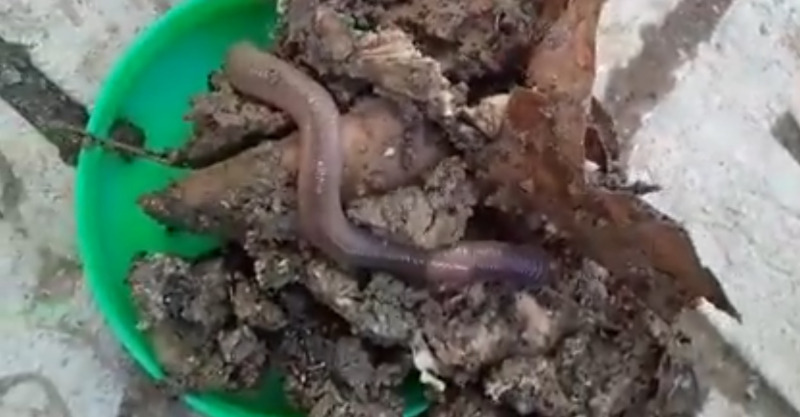 worms_2020-02-17.jpg
(Filesize: 77KB)
worms_2020-02-17.jpg
(Filesize: 77KB)
The following user(s) like this post: Heiner
Please Log in to join the conversation.
You need to login to reply- AjitSeshadri
-

- Marine Chief Engineer by profession (1971- present) and at present Faculty in Marine Engg. Deptt. Vels University, Chennai, India. Also proficient in giving Environmental solutions , Designation- Prof. Ajit Seshadri, Head- Environment, The Vigyan Vijay Foundation, NGO, New Delhi, INDIA , Consultant located at present at Chennai, India
Re: is there any particular earthworm species preferred for waste water treatment ? and worm identification questions
Dear MM.
You are welcome Sir.
Pl feel free to offer your details on your experience.
1. Both water and wastes to be used by communities.
2. Re use water can be used for growing fodder like elephant grass Etc.
3. This is usedcas feed for cattle for milk, poultry for eggs and meat. goats, Etc..
4. All tests for water. and other produces done and monitor - controlled.
5. Wastes realise compost - manure and extra worms too! Used for fishing!
6. When these facilities are gainfully used, communities have a good QoL.
And the wwt plants are sustained well
7. Have a good aesthetic floral gardens around the wwt plants and
8. Pay attention to maintainance practices of cleaning pruning and up grades.
Well wishes to communities.
Ajit Seshadri .
You are welcome Sir.
Pl feel free to offer your details on your experience.
1. Both water and wastes to be used by communities.
2. Re use water can be used for growing fodder like elephant grass Etc.
3. This is usedcas feed for cattle for milk, poultry for eggs and meat. goats, Etc..
4. All tests for water. and other produces done and monitor - controlled.
5. Wastes realise compost - manure and extra worms too! Used for fishing!
6. When these facilities are gainfully used, communities have a good QoL.
And the wwt plants are sustained well
7. Have a good aesthetic floral gardens around the wwt plants and
8. Pay attention to maintainance practices of cleaning pruning and up grades.
Well wishes to communities.
Ajit Seshadri .
Prof. Ajit Seshadri, Faculty in Marine Engg. Deptt. Vels University, and
Head-Environment , VigyanVijay Foundation, Consultant (Water shed Mngmnt, WWT, WASH, others)Located at present at Chennai, India
Head-Environment , VigyanVijay Foundation, Consultant (Water shed Mngmnt, WWT, WASH, others)Located at present at Chennai, India
Please Log in to join the conversation.
You need to login to reply- fppirco
-
Topic Author
- I am independent EH&S researcher in natural resources recovery ,water,wastewater,agro_food ...fields.
Less- Posts: 98
- Karma: 1
- Likes received: 22
Re: is there any particular earthworm species preferred for waste water treatment ? and worm identification questions
Thank you for compehensive respond.
Researcher and consultant
The following user(s) like this post: AjitSeshadri
Please Log in to join the conversation.
You need to login to reply- AjitSeshadri
-

- Marine Chief Engineer by profession (1971- present) and at present Faculty in Marine Engg. Deptt. Vels University, Chennai, India. Also proficient in giving Environmental solutions , Designation- Prof. Ajit Seshadri, Head- Environment, The Vigyan Vijay Foundation, NGO, New Delhi, INDIA , Consultant located at present at Chennai, India
Re: is there any particular earthworm species preferred for waste water treatment ? and worm identification questions
Dear MM.
Correct spelling is
-- EOSINEA FOETIDA sp..
Well wishes ..
Ajit Seshadri
Correct spelling is
-- EOSINEA FOETIDA sp..
Well wishes ..
Ajit Seshadri
Prof. Ajit Seshadri, Faculty in Marine Engg. Deptt. Vels University, and
Head-Environment , VigyanVijay Foundation, Consultant (Water shed Mngmnt, WWT, WASH, others)Located at present at Chennai, India
Head-Environment , VigyanVijay Foundation, Consultant (Water shed Mngmnt, WWT, WASH, others)Located at present at Chennai, India
Please Log in to join the conversation.
You need to login to reply- AjitSeshadri
-

- Marine Chief Engineer by profession (1971- present) and at present Faculty in Marine Engg. Deptt. Vels University, Chennai, India. Also proficient in giving Environmental solutions , Designation- Prof. Ajit Seshadri, Head- Environment, The Vigyan Vijay Foundation, NGO, New Delhi, INDIA , Consultant located at present at Chennai, India
Re: is there any particular earthworm species preferred for waste water treatment ? and worm identification questions
Dear M M.
Very pleased to know that vermitechnology is sought for wwt process.
Pl. note that worms are highly sensitive species andcrequire their food in well cooked form.
It is to mean that the wwt process proceeds in normal mode, as usually done.
The process to follow is as follows:
Primary - totally anaerobic for 1/3 rd HRT period, and sludges removed regularly for co composting in pits using FS and local bio mass and or cattle dung.
Seconadary- same as above, here in septic tanks can have large, medium and small stones, 1/3rd HRT, sludges for co composting process.
Tertiary- same as above use large open areas for plantation to provide phyto remediation.
Polishing process use for 1/10 th HRT applying extended aeration by subjecting to fountain sprays.
The sludges ex. wwt process are the raw feed. This is to be anarebically processed and say for a week / 10:days then the worms are introduced .
The worms species used in India used to be called Eisonea foetida , these are very hardy suited to trpopic heat and very self generative.
When the FS is consumed and the strength is reducing the worms will move in pits to areas where the matter is newer.
As the digested FS in form of compost is removed, some less active worm population are also removed.
The worms removed are sought after by fish farms, and for hook fishing. Fetches good values too.
Well wishes for apt community practices taking care of SDGs.
Ajit Seshadri
Very pleased to know that vermitechnology is sought for wwt process.
Pl. note that worms are highly sensitive species andcrequire their food in well cooked form.
It is to mean that the wwt process proceeds in normal mode, as usually done.
The process to follow is as follows:
Primary - totally anaerobic for 1/3 rd HRT period, and sludges removed regularly for co composting in pits using FS and local bio mass and or cattle dung.
Seconadary- same as above, here in septic tanks can have large, medium and small stones, 1/3rd HRT, sludges for co composting process.
Tertiary- same as above use large open areas for plantation to provide phyto remediation.
Polishing process use for 1/10 th HRT applying extended aeration by subjecting to fountain sprays.
The sludges ex. wwt process are the raw feed. This is to be anarebically processed and say for a week / 10:days then the worms are introduced .
The worms species used in India used to be called Eisonea foetida , these are very hardy suited to trpopic heat and very self generative.
When the FS is consumed and the strength is reducing the worms will move in pits to areas where the matter is newer.
As the digested FS in form of compost is removed, some less active worm population are also removed.
The worms removed are sought after by fish farms, and for hook fishing. Fetches good values too.
Well wishes for apt community practices taking care of SDGs.
Ajit Seshadri
Prof. Ajit Seshadri, Faculty in Marine Engg. Deptt. Vels University, and
Head-Environment , VigyanVijay Foundation, Consultant (Water shed Mngmnt, WWT, WASH, others)Located at present at Chennai, India
Head-Environment , VigyanVijay Foundation, Consultant (Water shed Mngmnt, WWT, WASH, others)Located at present at Chennai, India
The following user(s) like this post: fppirco
Please Log in to join the conversation.
You need to login to reply- fppirco
-
Topic Author
- I am independent EH&S researcher in natural resources recovery ,water,wastewater,agro_food ...fields.
Less- Posts: 98
- Karma: 1
- Likes received: 22
Re: is there any particular earthworm species preferred for waste water treatment ? and worm identification questions
Hi
I would like to know is there any particular earthworm species preferred for waste water treatment ?
Thank
Mohammad mojtabaie
Telfax:0985137629569
I would like to know is there any particular earthworm species preferred for waste water treatment ?
Thank
Mohammad mojtabaie
Telfax:0985137629569
Researcher and consultant
The following user(s) like this post: AjitSeshadri
Please Log in to join the conversation.
You need to login to reply- fppirco
-
Topic Author
- I am independent EH&S researcher in natural resources recovery ,water,wastewater,agro_food ...fields.
Less- Posts: 98
- Karma: 1
- Likes received: 22
Re: is there any particular earthworm species preferred for waste water treatment ? and worm identification questions
I would like a member(s) of Susan group whom are experts in earthworms species identification Could please Identify these earthworms species (Attached photo)and please if possible comments for their earthworm suitability for earthworm farming and my last question is about earthworms size ? large or small are suitable for earthworm farming?
regards;
Mohammad
regards;
Mohammad
Researcher and consultant
Attachments:
-
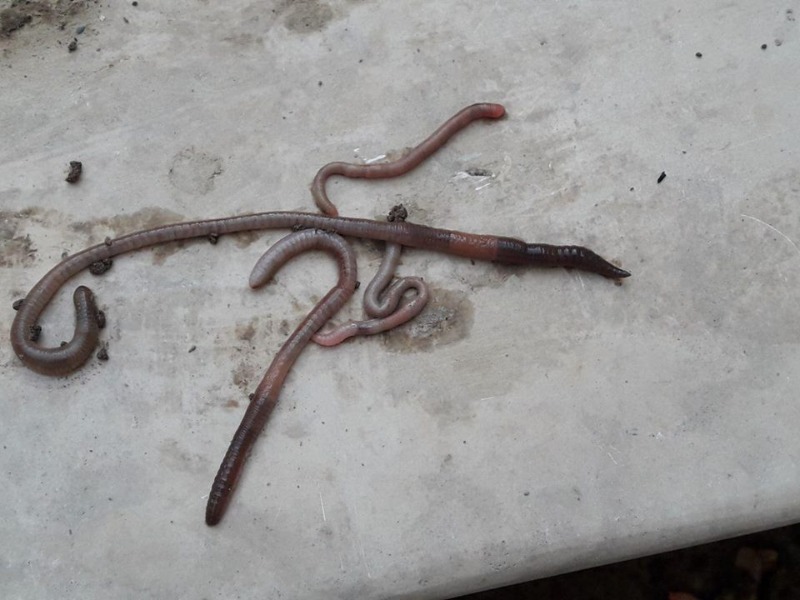 28379069_1...92_n.jpg
(Filesize: 102KB)
28379069_1...92_n.jpg
(Filesize: 102KB)
-
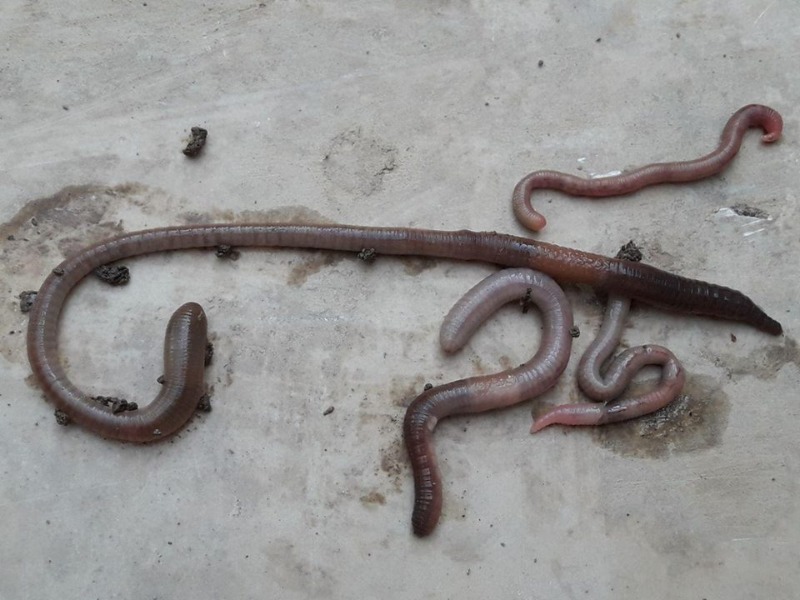 28378717_1...53_n.jpg
(Filesize: 112KB)
28378717_1...53_n.jpg
(Filesize: 112KB)
-
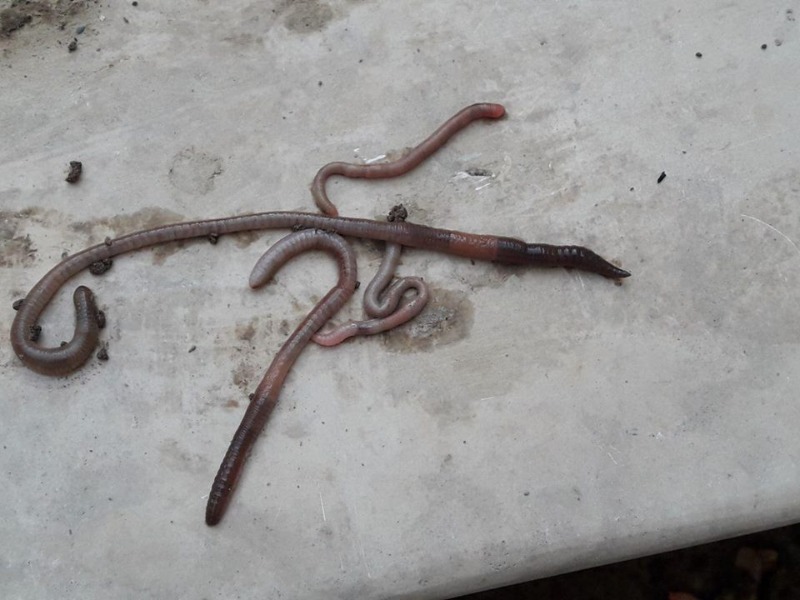 28379069_1...3-04.jpg
(Filesize: 102KB)
28379069_1...3-04.jpg
(Filesize: 102KB)
Please Log in to join the conversation.
You need to login to reply- fppirco
-
Topic Author
- I am independent EH&S researcher in natural resources recovery ,water,wastewater,agro_food ...fields.
Less- Posts: 98
- Karma: 1
- Likes received: 22
Re: is there any particular earthworm species preferred for waste water treatment ? and worm identification questions
Thanks to goeco for his reminding about slug not earthworm , I would like and interested to know slug harms and benefits in sludge in comparison with earthworm it seems slugs are very hardworking cleaner , Could they be useful for hazard removing (physical,biological and chemical solely in hazard sludge not for agriculture or vermicomposting as pre waste treatment?, it seems they have similar nutrient behaviors and similar Earthworm 's digestive system.
regards;
Mohammad
regards;
Mohammad
Researcher and consultant
Attachments:
-
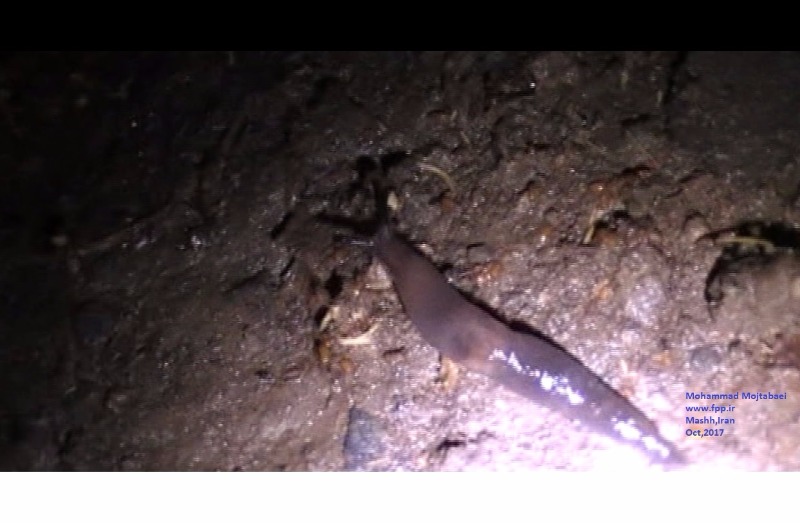 wn2_2017-09-26.jpg
(Filesize: 80KB)
wn2_2017-09-26.jpg
(Filesize: 80KB)
-
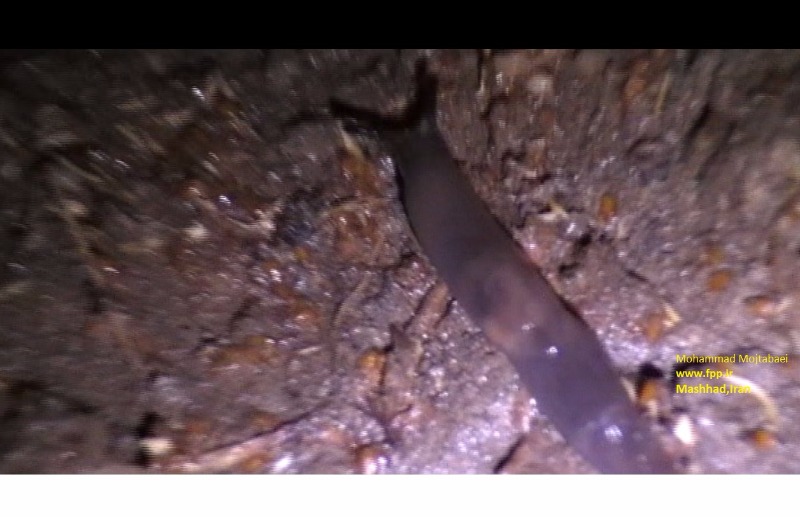 wn3_2017-09-26.jpg
(Filesize: 87KB)
wn3_2017-09-26.jpg
(Filesize: 87KB)
-
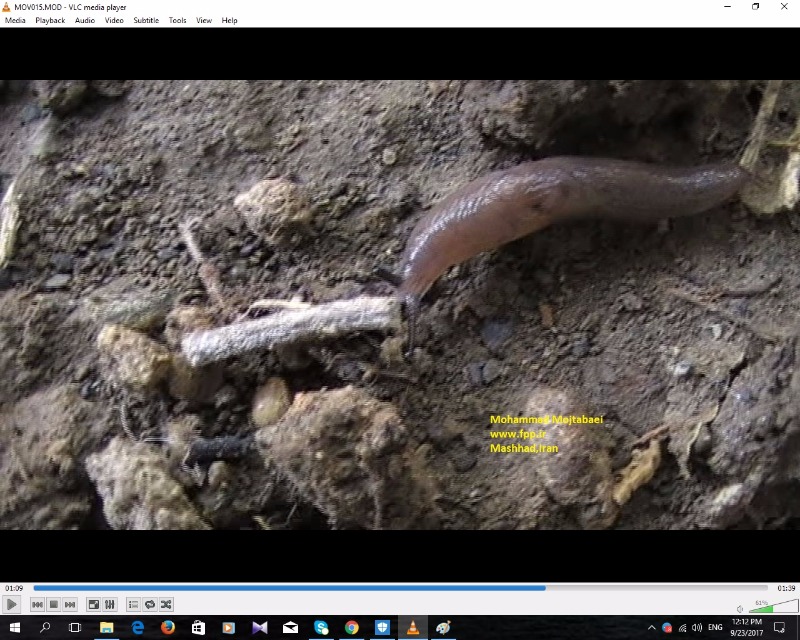 worm71_2017-09-26.jpg
(Filesize: 153KB)
worm71_2017-09-26.jpg
(Filesize: 153KB)
Please Log in to join the conversation.
You need to login to reply- fppirco
-
Topic Author
- I am independent EH&S researcher in natural resources recovery ,water,wastewater,agro_food ...fields.
Less- Posts: 98
- Karma: 1
- Likes received: 22
Re: is there any particular earthworm species preferred for waste water treatment ? and worm identification questions
Thank you , I also guess they must be of snail species but lacking of shell put me in mistake , Are they consider parasite for agriculture or horticulture ? Are they earthworm killer?
Thanks Mohmmad
Thanks Mohmmad
Researcher and consultant
Please Log in to join the conversation.
You need to login to replyRe: is there any particular earthworm species preferred for waste water treatment ? and worm identification questions
that is a slug not a worm.
Dean Satchell, M For. Sc.
Vermifilter.com
www.vermifilter.com
Vermifilter.com
www.vermifilter.com
Please Log in to join the conversation.
You need to login to reply
Share this thread:
- Forum
- categories
- Announcements and miscellaneous
- Miscellaneous - any other topic
- is there any particular earthworm species preferred for waste water treatment ? and worm identification questions
Recently active users. Who else has been active?
Time to create page: 0.148 seconds







